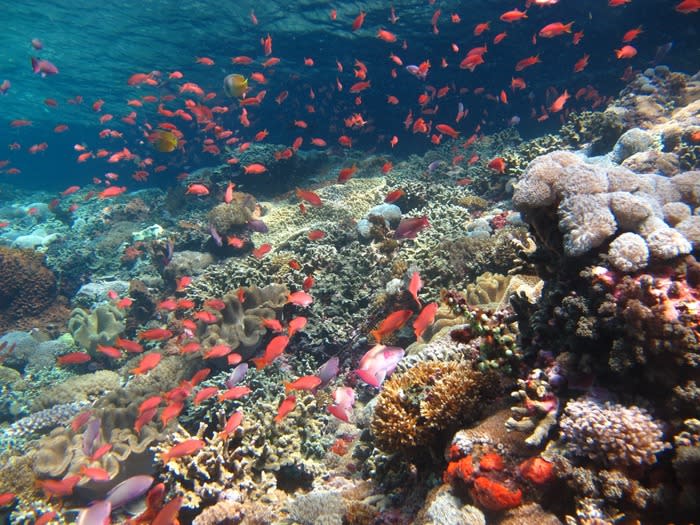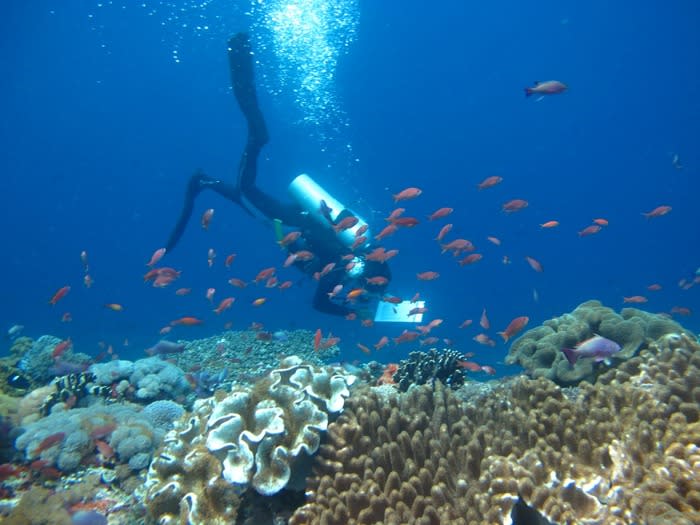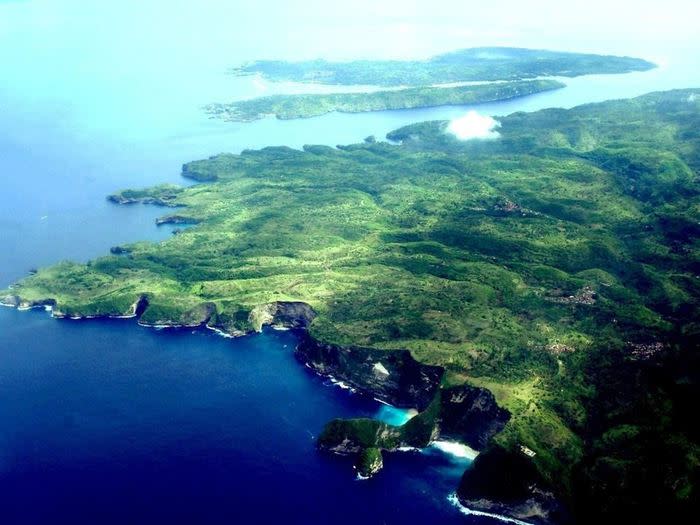Nusa Penida gets conservation award
The Maritime Affairs and Fisheries Ministry has named Nusa Penida Water Conservation Area (KKP) one of the best such sites in Indonesia.
Agus Dermawan, director of conservation sites and fish diversity in the ministry, said that Nusa Penida received the award because of its efficient management program based on evaluation of Water and Small Islands Conservation and Assessments (E-KKP3K).
The 20,000-hectare Nusa Penida Water Conservation Area comprises Nusa Ceningan and Nusa Lembongan waters in Klungkung regency.
Dermawan said Indonesia had 76 water conservation areas measuring 16 million hectares managed by the central, provincial and regional governments.
“As part of the Coral Triangle Initiative [CTI], the Indonesian government together with five other countries, the Philippines, Malaysia, Timor Leste, Papua New Guinea and the Solomon Islands, have committed to protect at least 20 million hectares of water conservation area in each country,” Dermawan stated.
The national award was presented to encourage conversation areas to be managed properly and efficiently, Dermawan said.
“Nusa Penida had to compete with Raja Ampat water conservation area in Papua,” he said, adding that the award was expected to encourage both Bali’s provincial administration and Klungkung regency to demonstrate stronger commitment to preserving and managing the site in sustainable ways, including providing adequate funding.
I Gusti Ngurah Badhiwangsa, head of Klungkung Marine, Fishery and Husbandry Agency, said that the regional administration was currently preparing a sustainable funding scheme to support Nusa Penida’s water conservation efforts.
“Following the mode of Raja Ampat water conservation funding might be our first option,” he said. In Raja Ampat, visitors are fully active in conservation and funding activities.
“In Nusa Penida, visitors [tourists] come for very short trips, they stay in other parts of Bali, “ said Badhiwangsa.
The management of shorelines, coastal villages and coral reefs required huge funding, he said.
“Klungkung regional administration is now working on generating new fees from tourism. But we need to be careful not to collect additional fees for Nusa Penida,” he said.
He said that the fees were set at between Rp 4,000 and Rp 7,000 (33-58 US cents) per person.
Marthen Welly from the Coral Triangle Center (CTC) stated that the development of the Nusa Penida water conservation area had started in 2008.
“It was a collaborative effort. CTC participated in providing scientific, technical and policy making input through a series of comprehensive surveys and research,” Welly said.
Welly also stated that creating a marine tourism code of conduct was crucial, as well as arranging sustainable and long-term funding schemes.
Based on surveys conducted by The Nature Conservancy (TNC) and CTC, there are 296 types of coral and 576 species of fish; five of them newly found and only in Nusa Penida’s waters.
Nusa Penida’s waters are also home to large sea creatures, such as whales, sharks, sunfish and dolphins, as well as turtles. It also has 230 hectares of mangrove forest with 13 types of mangrove and 1,459 hectares of coral reef.
Read also:





